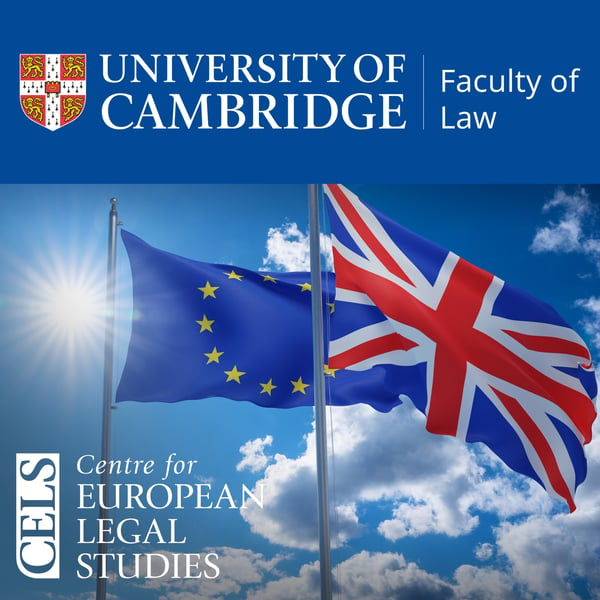'Enforcing Passport Apartheid through EU Law: From Internal Market to the Polish Border': CELS Seminar
Cambridge Centre for European Legal Studies (CELS) Podcast
Faculty of Law, University of Cambridge
0 • 0 Ratings
🗓️ 24 February 2022
⏱️ 39 minutes
🧾️ Download transcript
Summary
Transcript
Click on a timestamp to play from that location
| 0:00.0 | My name is Marcus Gearing. I'm directing the Center for European Legal Studies here at the University of Cambridge. |
| 0:15.0 | And this week we have another one of our lunchtime lectures, |
| 0:23.6 | which we're going to conduct in hybrid format. |
| 0:25.6 | So we have an audience here in the law faculty itself |
| 0:29.6 | and participants online. |
| 0:34.6 | It's my real personal pleasure to welcome Professor Dimitri Kocchinov, who is a professor in the Department of Law of the Central European University. |
| 0:50.3 | He's a renowned author and sometimes refer to somewhat cheekly as the passport professor. |
| 0:59.0 | I know him well from his time at the University of Horningen, where he worked for many years. |
| 1:09.0 | He is a world-class expert on citizenship, passport. |
| 1:16.6 | His passport index is one of the leading publications in the field. |
| 1:23.6 | More recently, he's also distinguished himself in the rule of law literature, where he has made |
| 1:33.4 | significant contributions on the challenges in the rule of law that some member states of the |
| 1:41.9 | European Union face. |
| 1:45.0 | Today he's going to talk to us about passport apartheid. |
| 1:51.0 | And I'm personally quite excited as someone whose children have five passports, |
| 2:01.6 | I'm always excited to hear what the latest in citizenship law |
| 2:08.6 | and passport is all about. |
| 2:11.6 | Dimitri, it's a pleasure to have you in Cambridge |
| 2:14.6 | and finally in person. It's my absolute delight really |
| 2:19.6 | to open this post-pandemic phase in our lives with something that will excite at least |
| 2:30.0 | those whose children have five possible. But my main preoccupation today is actually trying to rethink EU law from the perspective of the |
| 2:43.0 | constant attention to personhood that this legal system awards. |
... |
Please login to see the full transcript.
Disclaimer: The podcast and artwork embedded on this page are from Faculty of Law, University of Cambridge, and are the property of its owner and not affiliated with or endorsed by Tapesearch.
Generated transcripts are the property of Faculty of Law, University of Cambridge and are distributed freely under the Fair Use doctrine. Transcripts generated by Tapesearch are not guaranteed to be accurate.
Copyright © Tapesearch 2025.

